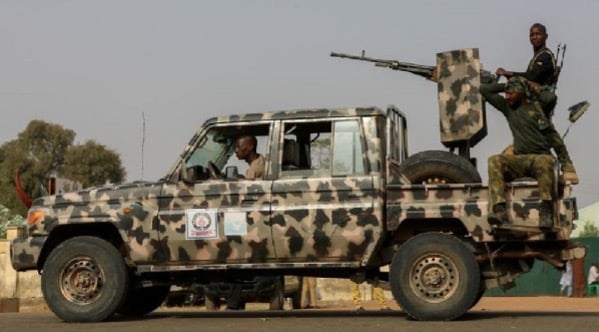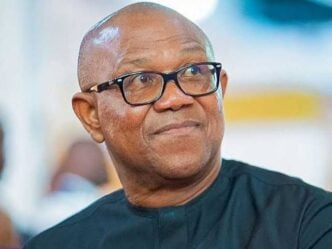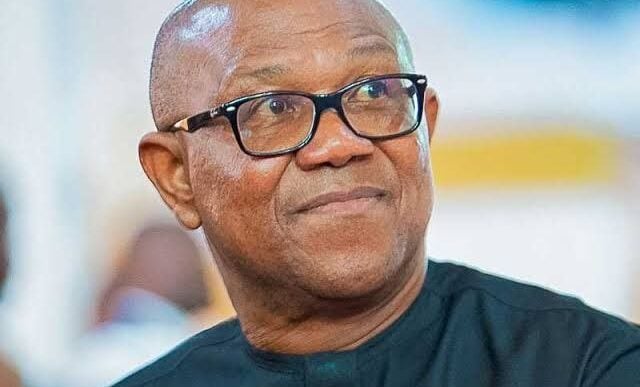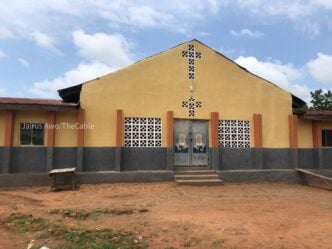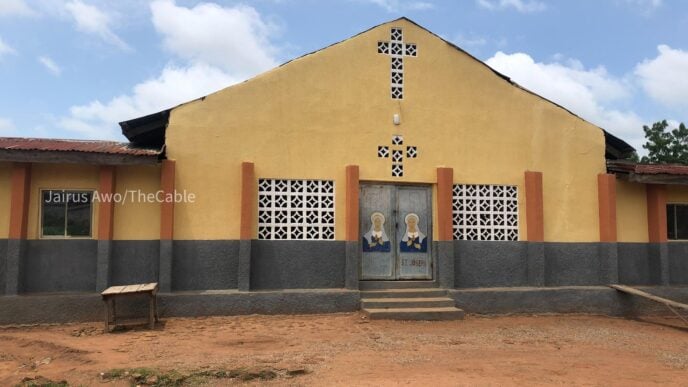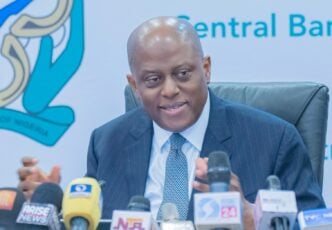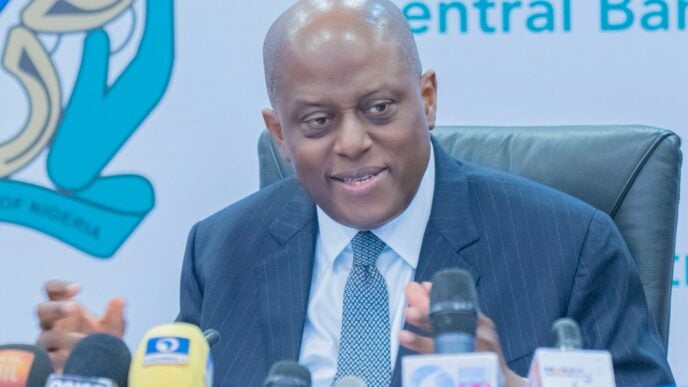A military truck at a checkpoint in Abuja
This past weekend, Nigerians woke up to the report by an online publication of an alleged coup plot by 16 army officers believed to be associated with the office of the national security adviser. The report suggested that their intention was to overthrow President Bola Tinubu and other ‘selfish politicians’. The narrative surrounding the alleged coup was tied to the cancellation of the traditional independence parade, which was scheduled for the Aso Villa Parade Ground, with claims that the plotters planned to launch an attack that would have killed Tinubu, his vice, Kashim Shettima, Senate President Godswill Akpabio and other dignitaries.
An unnamed brigadier-general and nephew of former Governor Umaru Tanko Al Makura, who returned from India, has since been detained with other plotters and was reportedly the alleged mastermind. While the online newspaper had asserted that the officers were detained for planning to execute a coup, the military initially claimed they were detained for “repeated failure in promotion examinations and perceived career stagnation”. Amidst the rumours of the plot, the Defence Headquarters quickly issued a statement denying such claims. They clarified that the cancellation of the Independence parade was due to the president’s bilateral commitments abroad and emphasised that the officers were held for disciplinary issues. Despite the uncertainty surrounding the coup plot, there has been significant backlash from Nigerians. Senior lawyers, civil society groups and retired generals warned against any attempt to subvert democracy.
The outrage was justified.
No Nigerian who lived through the oppressive years of military rule would advocate for a return to military takeover and undermining of democracy. When the news broke, I observed on social media how mostly young Nigerians, especially on X (formerly Twitter), seem to embrace the idea of a military coup. They wished the coup plot had been successful. They hold an idealistic view of a revolution, and they believe a military coup would bring the desired change. They often referenced recent coups in Burkina Faso, Niger and other parts of Africa, expressing the desire for a radical change without considering the implications of a military coup. These sentiments stemmed from the 2023 presidential election, with opposition party supporters believing a coup that dethrones Tinubu as a form of justice. They mistakenly believe that a military coup would reset the country and put it on the path of progress.
Advertisement
Nothing can be further from the truth.
Given Nigeria’s historical context, anyone considering military intervention lacks the knowledge of our contemporary political history. Unlike countries such as Burkina Faso and others, wishing for a military takeover is naive and misguided. Nigeria’s experience with military regimes has always resulted in wasted opportunities. Following the military rule of 1966, Nigeria began a downward spiral leading to the truncation of the Parliamentary system to a centralised unitary system where absolute power was vested with the military head of state. The bloody Civil War of 1967-1970 was of power play by the inexperienced military officers.
Although some have argued that military regimes brought some developmental strides, especially during the Yakubu Gowon years as head of state. But it was also the oil boom years when Nigeria could have achieved much more, but most of the resource was lost to corruption as military rulers prioritised patronage and cronyism. The return of military rule after the fall of the Second Republic only led to more hardships as the regime of the late General Buhari’s draconian policies worsened the situation. He was later removed by Ibrahim Babangida.
Advertisement
The years between 1985 and 1998, marked by the regimes of Buhari, Babangida and Abacha, are considered the darkest years in Nigeria’s history. Following his removal of Buhari, Babangida embarked on unproductive transition programmes culminating in the annulment of the June 12 1993, election that tragically led to the death of the presumed winner of the election, MKO Abiola. The chaos and uncertainty that followed the annulment provided a loophole for Sani Abacha to remove the head of the National Interim Government, Ernest Shonekan. Nigeria faced severe instability and teetered on the brink of another Civil War. But the military did not care as they were too consumed by their egos, power struggles and lust for power.
The Abacha years were often regarded as a low point for Nigeria. The period was characterised by extrajudicial killings and repression. Notable Nigerians, like journalists and NADECO members, were hunted and killed. The assassination of Kudriat Abiola and the attempted murder of the late Alex Ibru are still fresh in the memory. During the Abacha years, state-sponsored killings were deployed to silence dissent. Nigeria also became a Pariah State. The atrocities committed by Nigeria’s military rulers have been documented in various literature and are beyond the scope of this piece. Apart from the brutality of successive military regimes, the military dictatorship brought a lot of instability, and Nigerians lived in constant fear. For example, the violent coup of 1976 led to the death of General Murtala Mohammed and other officers who were shot for their role in the coup.
Since the military handed over power to the civilians in 1999, Nigeria has had over two decades of uninterrupted democracy. While the politicians have not lived up to the expectations of Nigerians, the notion of a return to military dictatorship should not be entertained by Nigerians. The clamour for a military intervention by some Nigerians, especially the younger generation who were born at the turn of the millennium, reflects the trend of military coups sweeping across the sub-regions, specifically in Niger and Burkina Faso. However, as I highlighted in a tweet on X following the alleged coup plot, Nigeria’s complexities and population-which has doubled since 1994, set it apart from the smaller neighbouring countries.
In 1966, when the military first took power, the population was around fifty-one million. Any attempt at a military takeover today will pose a logistical nightmare for the plotters and is bound to fail in execution. A military takeover requires logistics coordination and military resources across major cities. These logistical mistakes blighted earlier coups, such as the 1966 coup and the Gideon Orkar 1990 coup.
Advertisement
Today, the complexities are even more. The size and make-up of the Nigerian Army, one of the largest on the continent, will compĺlcate things further. Coordinating such a large army with its many fault lines, as diverse as the nation itself, is likely to result in disarray, following the counter-coup of 1996. A coup in a country with longstanding civilian rule would create some difficulties for the plotters.
Historically, the military suppresses freedom of speech, and at a time when Nigerians can freely criticise politicians, a military government would not tolerate such dissent. The Nigeria of today, unlike the 1990s, would pose a significant governance challenge for military rulers. Nigeria still symbolises the hope of democracy for Western powers. Coup plotters would face pushback and stiff resistance from the international community, and the evolution of dissent, the plotters would also have to contend with freedom of speech in the age of social media, where dissent could be voiced anonymously.
Nigerians should condemn and reject any idea of a military coup and call for the investigation and trial of any army officer attempting to return the country to military dictatorship. We need to continue to advocate for accountability and good governance from our political leaders. The military has no solution to Nigeria’s challenges. They should be committed to their constitutional role of protecting the country’s territorial integrity. They are even more needed to continue to fight the insecurity that is plaguing our country than in the corridors of power. The military has nothing to offer in the corridors of power. Nigerians should speak with one voice and say NEVER AGAIN to military rule.
Advertisement
Views expressed by contributors are strictly personal and not of TheCable.

